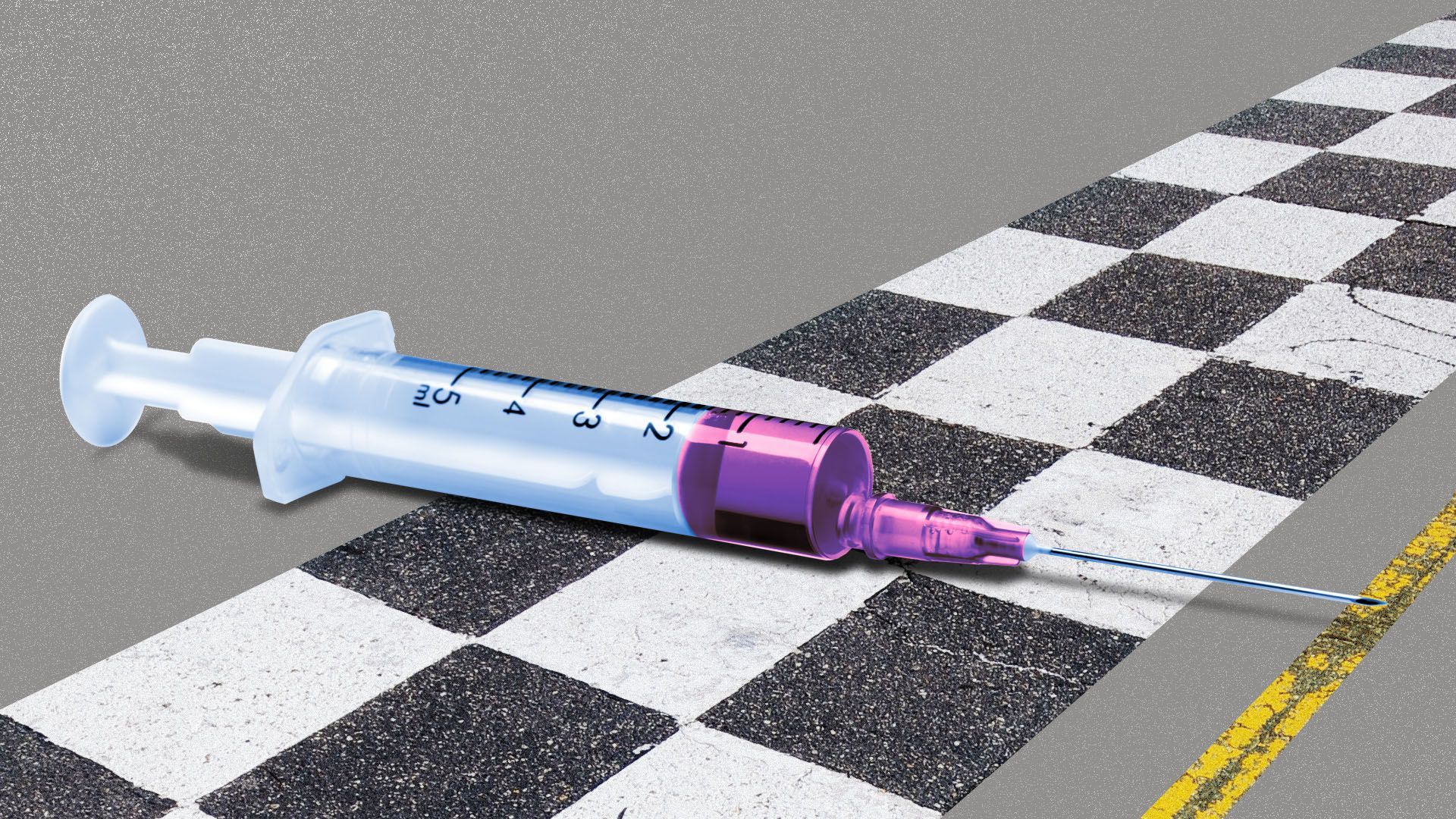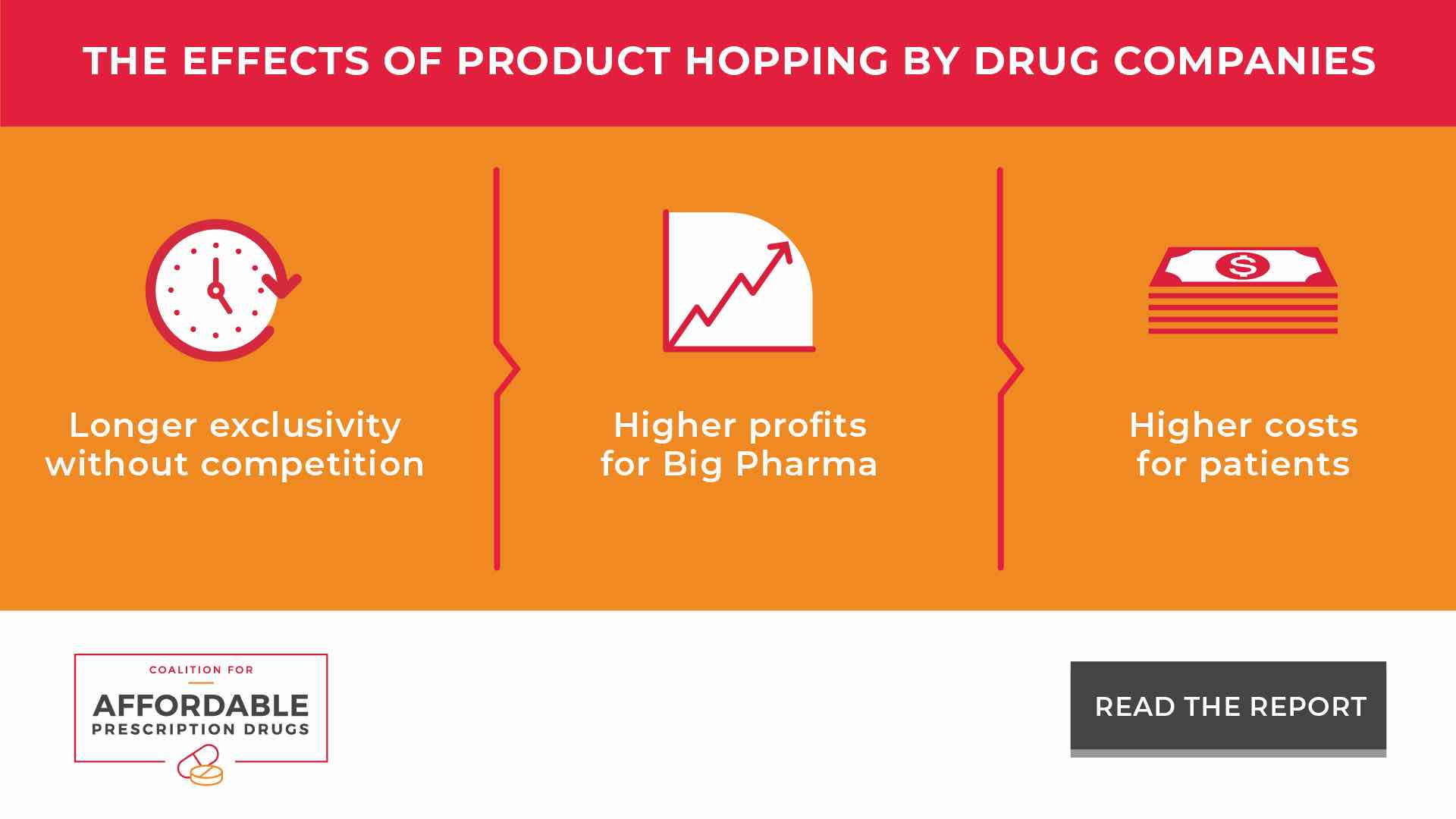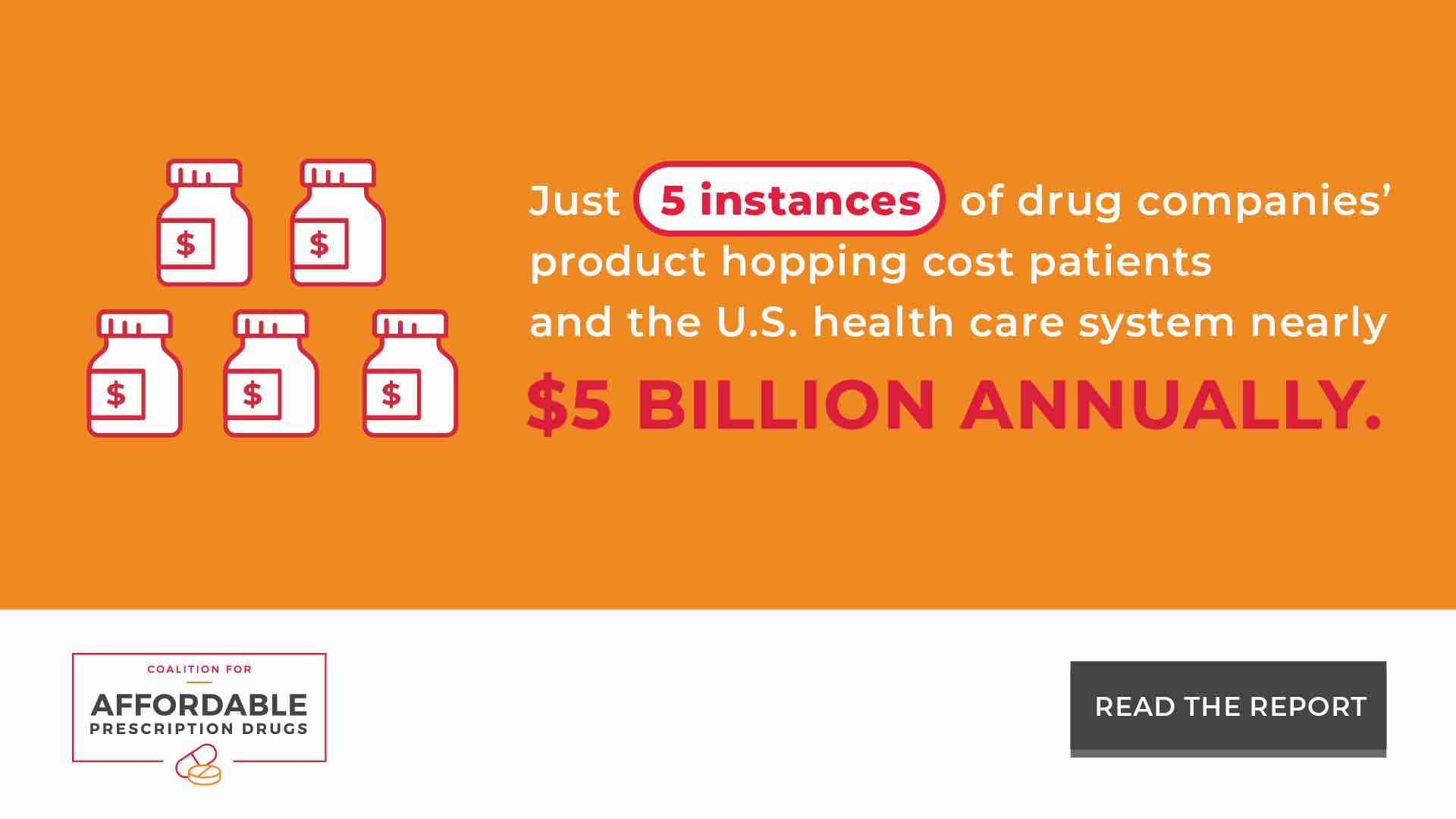| | | | | | | Presented By The Coalition for Affordable Prescription Drugs | | | | Vitals | | By Caitlin Owens ·Sep 17, 2020 | | Good morning. Today's word count is 1,209, or a 5-minute read. | | | | | | 1 big thing: The risks of moving too fast on a coronavirus vaccine |  | | | Illustration: Sarah Grillo/Axios | | | | The scientific race for a coronavirus vaccine is moving at record-shattering speed. Making the most of that work — translating a successful clinical product into real-world progress — will require some patience, Axios' Sam Baker writes. Why it matters: If we get a vaccine relatively soon, the next big challenge will be balancing the need to get it into people's hands with the need to keep working on other solutions that might prove more effective. Where it stands: Eight potential vaccines are in late-stage clinical trials. The first one could be submitted for FDA review as early as October or November, and several more could follow within just a few months. - The FDA has already laid out its standards for potential vaccines: They have to be safe, and they have to reduce the chance of moderate to severe infection by at least 50%.
- That's a relatively modest bar, but experts say it's an appropriate one, especially in an emergency.
But the fear is that the understandable desire to get a safe, effective vaccine into people's veins as fast as possible could make a better or more targeted vaccine harder to come by. - "My concern is that you want to get it right the first time, whatever you [authorize] first because it's really going to change the landscape," said Natalie Dean, a biostatistician at the University of Florida.
What they're saying: One of the most important things regulators and vaccine developers can do right now, experts said, is to generate as much data as possible while clinical trials are still underway. - They won't have another chance to run more clinical trials just to study how the vaccines work for narrower groups of people. So whatever questions we need to answer in the future, they'll have to be answered with today's data.
Go deeper. |     | | | | | | 2. Trump undercuts CDC on vaccines | | You just read today's substance on vaccines. And now, the politics: President Trump said at a press conference yesterday that CDC director Robert Redfield was wrong when he told Congress that a coronavirus vaccine won't be available for widespread distribution until the second or third quarter of 2021. Reality check: Redfield was likely laying out the best-case scenario for how soon a vaccine will be widely available. It is impossible for the vast majority of Americans to get a vaccine by the end of this calendar year. The big picture: Lots of people — scientists and the public alike — are already worried about the politicization of an eventual coronavirus vaccine. This surely doesn't help. The other side: Redfield testified on Wednesday that a vaccine could be available for first responders and vulnerable populations by November or December, but that it will take six to nine months before it can be distributed nationally. - Moncef Slaoui, the chief scientific adviser to Operation Warp Speed, the project tasked with developing a vaccine by January, has also said it is "extremely unlikely" that widespread distribution will be possible by October or November.
What they're saying: Joe Biden responded on Twitter: "When I said I trust vaccines, and I trust the scientists, but I don't trust Donald Trump — this is what I meant." |     | | | | | | 3. Disparities extend to health coverage losses |  Reproduced from Avalere Health; Chart: Axios Visuals The pandemic has exacerbated a racial disparity in insurance coverage, in addition to its myriad other racial inequities, per a new Avalere analysis. Why it matters: Before the pandemic, Black and Latino Americans were already much less likely than white Americans to have employer-based coverage. And now they're losing that coverage at a greater rate. Between the lines: Workers of color have seen higher employment declines than white workers. - Many people who lost their employer coverage will be able to turn to Medicaid or subsidized plans through the Affordable Care Act, but those aren't as generous as typical employer plans.
- "Overall, the shift away from employer-sponsored insurance could be challenging for patients," said Avalere's Tom Kornfield. "Many of these patients could face less generous benefit design, greater cost sharing, and more limited formularies in Medicaid or in the individual market."
And Medicaid may not be an option for people in states that haven't expanded the program — which are heavily concentrated in the South. - Even before the pandemic, Black Americans in non-expansion states were more likely to be uninsured than white Americans in those states. Non-expansion states also generally have higher Black populations than expansion states.
Related: As of this month, 26% of Black Americans are uninsured — a sharp increase from 17% in February, according to a new survey by Civis Analytics. |     | | | | | | A message from The Coalition for Affordable Prescription Drugs | | Product hopping by drug companies threatens Rx competition | | |  | | | | New data: Five instances of product hopping cost the U.S. health care system nearly $5 billion dollars annually. Halting this practice could save the system billions more. Read the report. | | | | | | 4. Coronavirus cases increase in 17 states |  Data: The COVID Tracking Project, state health departments; Map: Andrew Witherspoon, Sara Wise/Axios Coronavirus infections ticked up slightly over the past week, thanks to scattered outbreaks in every region of the country, Sam reports with Axios' Andrew Witherspoon. Where it stands: The U.S. has been making halting, uneven progress against the virus since August. Overall, we're moving in the right direction, but we're often taking two steps forward and one step back. By the numbers: The U.S. saw an average of about 37,000 new cases per day over the past week. The daily rate of new cases increased in 17 states and declined in 13. - Testing fell by over 6% from the week before. The U.S. averaged just under 695,000 tests per day.
- There's no clear geographic trend at work. Since the midsummer surge across the Sun Belt subsided, new outbreaks have been driven largely by one-off, localized events, like college campuses reopening.
|     | | | | | | 5. Poll: Biden beats Trump on health care |  Reproduced from the Kaiser Family Foundation; Chart: Axios Visuals Swing voters in three swing states prefer Joe Biden over President Trump on health care and the coronavirus — but those aren't their most important issues, according to the latest KFF-Cook Political Report poll. The big picture: The economy is the most important issue to these voters, and they give the advantage there to Trump, KFF's Drew Altman writes in today's column. - But Biden dominates the next tier of issues in this poll of swing voters in Arizona, Florida and North Carolina.
Details: Between 32% and 38% of swing voters in the three states picked the economy as their most important issue, far ahead of health care, policing, or the coronavirus, and they gave Trump a 7-12 point lead over Biden on the economy. - But Biden has a 7-11 point lead with voters on the coronavirus, and a 7-9 point lead on health.
- Also in Biden's favor. Swing voters in these states are younger and are largely political moderates and independents.
Between the lines: The election is more about President Trump than it is a deep dive into issues. But the issues do matter. |     | | | | | | 6. Catch up quick |  | | | Illustration: Aïda Amer/Axios | | | | In remarks in Delaware on Wednesday, Joe Biden made clear that he trusts the scientists on a coronavirus vaccine but not President Trump, laying out a list of three criteria he wants the administration to meet to ensure the process is not politicized. White House press secretary Kayleigh McEnany told reporters that "herd immunity has never been a strategy" for the Trump administration's response to the coronavirus after the president claimed on Tuesday that the coronavirus would disappear when people develop "a herd mentality." Department of Health and Human Services spokesperson Michael Caputo is taking a 60-day leave of absence "to focus on his health and the well-being of his family," the agency said in a statement on Wednesday. CDC director Robert Redfield suggested in a Senate Appropriations subcommittee hearing on Wednesday that face masks are "more guaranteed" to protect against the coronavirus than a vaccine, citing the potential for some people to not become immune to the virus after receiving the shot. New York City Mayor Bill de Blasio announced on Wednesday that all employees in his office, including himself, will be subject to a one-week furlough sometime between October and March. The Big Ten announced Wednesday that it will begin its football season during the weekend of Oct. 23-24, backed by daily coronavirus testing for all on-field personnel and enhanced cardiac screenings. |     | | | | | | A message from The Coalition for Affordable Prescription Drugs | | Drug companies abuse the patent system and keep prices high | | |  | | | | Product hopping circumvents generic competition and allows brand drug companies to charge higher prices longer. Read more in the report. | | | | | | Axios thanks our partners for supporting our newsletters.
Sponsorship has no influence on editorial content. Axios, 3100 Clarendon Blvd, Suite 1300, Arlington VA 22201 | | | You received this email because you signed up for newsletters from Axios.
Change your preferences or unsubscribe here. | | | Was this email forwarded to you?
Sign up now to get Axios in your inbox. | | | | Follow Axios on social media:    | | | | | |













